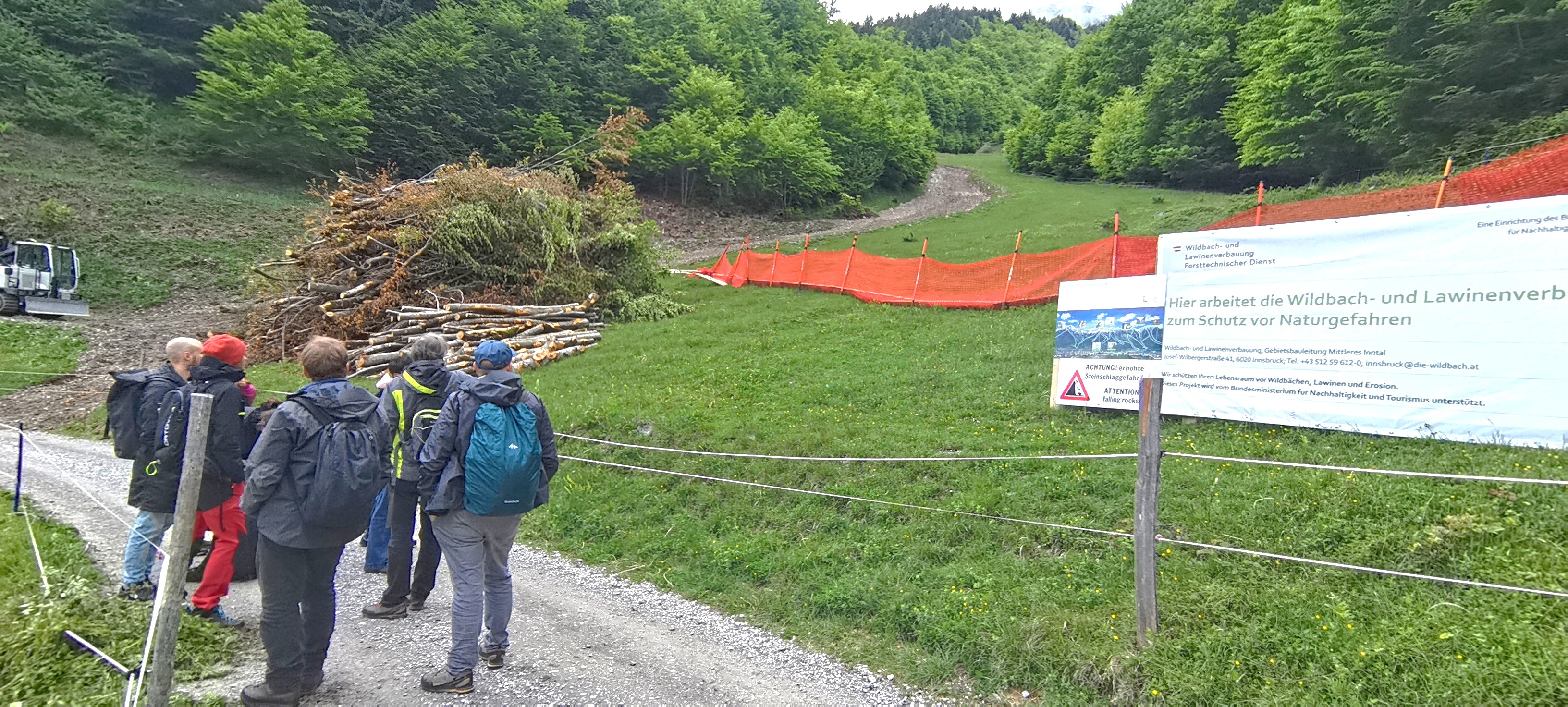Emlyn Yang Elected as New Spokesperson of the Arbeitskreis Naturgefahren und Naturrisiken in DGfG
The annual meeting of the Working Group on Natural Hazards and Natural Risks (Arbeitskreis Naturgefahren und Naturrisiken) was held on May 22–23, 2025, at the University of Innsbruck, bringing together a dynamic and interdisciplinary community of researchers committed to advancing the science and practice of risk and resilience. Among the key outcomes of the meeting was the election of a new spokesperson team, with Dr. Emlyn Yang at LMU Munich, honored as one of the group’s three newly elected representatives.
Dr. Yang will serve alongside Dr. Alexandra Titz (Erlangen) and Dr. Andreas Mayer (Innsbruck), following the stepping down of the previous spokespersons Prof. Alexander Fekete (Cologne), Prof. Sven Fuchs (Vienna), and Prof. Matthias Garschagen (Munich). The Working Group extends sincere thanks to the outgoing spokespersons for their years of dedication and leadership. The new team was chosen to guide the Working Group into its next phase, aiming to strengthen interdisciplinary collaboration and foster knowledge exchange on natural hazard, risk studies and resilient development across both academic and applied communities.
Dr. Yang’s research explores the resilience of human-social systems to climate change impacts. He is particularly interested in how societies build and sustain resilience against environmental and climate threats. Another interest is in the assessment and modeling of resilience achievement, progress and potentials. His work emphasizes successful cases, demonstrates significant progress, and showcases the wide array of solutions, technologies, and strategies that enables resilient development. He frames climate resilience through a hopeful lens that underscores human potential, adaptability, and innovation, and fosters a narrative of optimism of human-climate relations against the backdrop of risk and crisis discourses. Besides the specific and technical work, Dr. Yang attempts to understand the fundamental, conceptual and theoretical issues of “resilience systems”. Dr. Yang employs a diverse set of methodologies, including household surveys, expert interviews, stakeholder network analysis, agent-based modeling, geo-information system and data-driven machine learning. His research spans multiple global regions, including China, Vietnam, Thailand, Pakistan, Nepal, and Germany, with a historical perspective on social resilience over the past 5,000 years.
As one of the new spokespersons, Dr. Yang expressed enthusiasm about his new role “It is a great honor to be entrusted with this responsibility. I look forward to contributing to a collaborative agenda that advances both scientific inquiry and the societal relevance of our work. In an era of compounding risks, we must continue to understand and strengthen our resilience together as a networked society, and to build bridges between disciplines and with the communities we serve.”
The Working Group (AK) is a component of the German Society for Geography (DGfG, Deutschen Gesellschaft für Geographie) and has served since 1997 as an open and integrative platform for academic and professional exchange in the field of hazard and risk research. It brings together scientists, students, public officials, private sector actors, and interested individuals to advance understanding of natural hazards from mainly physical and human geography perspectives but also other disciplines. Annual meetings are held to foster dialogue, collaboration, and the identification of emerging research needs. The Working Group explicitly welcomes participation from all interested parties and seeks to promote interdisciplinary engagement in addressing the complex challenges posed by natural hazards and risks in society. More information is available here https://ak-naturgefahr.web.th-koeln.de/


